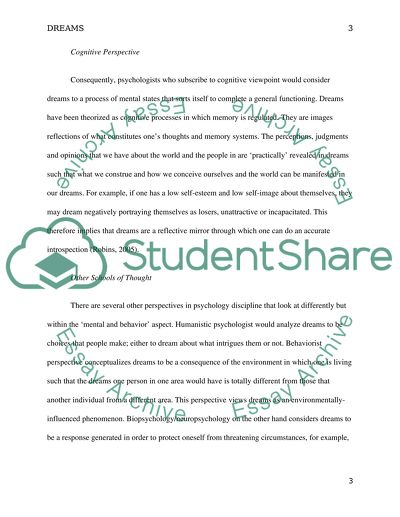Dreams Term Paper Example | Topics and Well Written Essays - 500 words. Retrieved from https://studentshare.org/psychology/1678367-dreams
Dreams Term Paper Example | Topics and Well Written Essays - 500 Words. https://studentshare.org/psychology/1678367-dreams.


